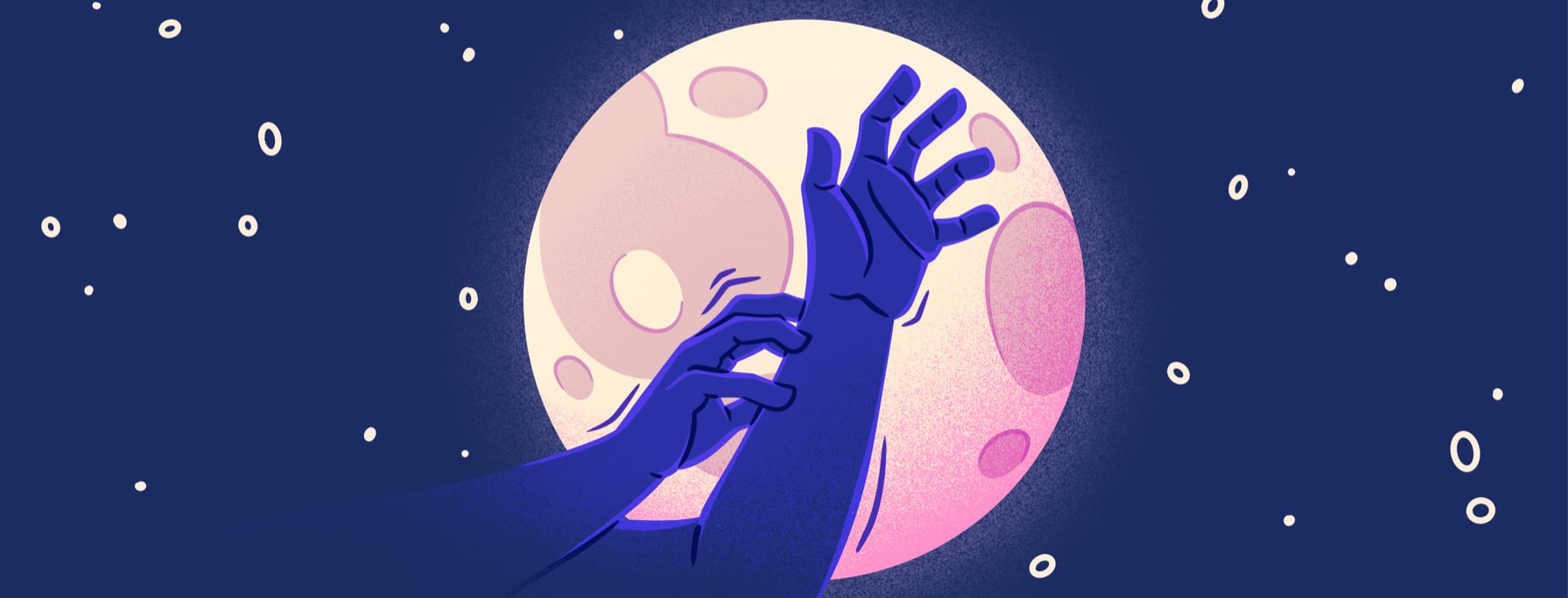Why Does Psoriasis Itching Get Worse At Night?
Itchiness is one of the most bothersome symptoms of psoriasis. Itchy skin affects more than 70 percent of people living with psoriasis. But too much scratching can lead to bleeding, skin flaking, open sores, and infection. It may also make the wounds you already have even worse.1
Many people with psoriasis say itchiness feels worse at night. This, then, disrupts their sleep and overall quality of life. Why does this happen, and what steps can you take to help calm your skin?1
Circadian rhythm
The circadian rhythm is a natural process that controls your body's sleep-wake cycle and other critical bodily functions. It operates on a 24-hour cycle and regulates things like hormone levels, body temperature, and metabolism.2
Scientists have found that changes to your circadian rhythm can trigger nighttime itching. These changes include:2
- Body temperature: A part of your brain called the hypothalamus helps maintain the circadian rhythm and shifts your core body temperature. Your body temperature is at its peak at night, leaving your skin hot and itchy.
- Water loss: The top layer of your skin helps keep things out that cause itching. When this layer does not work well, it can worsen certain skin conditions. Experts can measure how well the layer works by how much water you lose through your skin. In many people, this water loss is higher at night.
- Hormones: Cortisol works in your body to lessen inflammation and itching. But this hormone may be less concentrated at night. Meanwhile, people with certain skin conditions tend to have lower levels of the hormone melatonin in the evening, which can lead to trouble sleeping and itching.
- Cytokines: Your cells make these tiny proteins to help control your body’s immune response and manage inflammation. Cytokine levels may rise at night and result in itchiness.
Other causes
There are other reasons why your skin could be itchier in the later hours, such as 2,3
- Environment: Your home could have higher temperatures and lower humidity at night. For example, this may happen when you run your heating system in the winter.
- Depression and stress: Nighttime itchiness could be a symptom of mental or emotional problems, including depression and stress. Stress affects your body’s temperature and blood flow. Depression throws off the balance of certain chemicals in your body. One result of these changes may be a worsening itch.
- Pain: Taking medicine to reduce pain can sometimes lead to more itching. This is due to a change in the levels of certain chemicals in your body.
Treating itchy skin at night
There are ways to relieve your itchy skin for a more restful night. While the best treatment depends on what is causing your irritated skin, here are some ideas:3
- Treat the root cause of the itch. If you have anxiety, stress, or depression, talk to a mental health professional.
- Talk to your doctor. They may prescribe an antidepressant, melatonin supplements, or anti-itch cream.
- Switch up your nighttime hygiene routine. Changes could include taking a bath, using lotion, or placing a wet compress on your skin.
- Change the temperature. Your bedroom should be between 60 and 69 degrees Fahrenheit.

Join the conversation